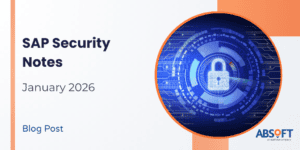The last few years have seen pressures on UK industry increase dramatically, arguably nowhere more so than within the food and beverage sector. With higher input costs, increased volatility and unpredictability within both the supply chain and consumer demand, combined with greater demand for online accessibility and sustainability, the need to have operations and manufacturing processes that are as efficient as possible is now a business imperative.
 
Our webinar series ‚ÄúSAP and the Connected Food and Beverage Business‚ÄĚ explores some of these challenges and examines how a cloud-based SAP ERP solution can help you achieve efficiencies across the whole Food and beverage business.¬†
- The first webinar focused on the ordering process and supply chain integration.  
- For part two, “The Connected F&B Factory“,¬†we took a step down the line and¬†looked at the efficiencies that can be achieved when companies start to take some of that automation and integration to the factory floor;
- Sustainability strategies and how SAP ERP can help you control, track and reduce carbon emissions was the topic covered in part three;
- Tackling logistical challenges with the help of your SAP was the focus of the fourth webinar from the series. We’ve covered how F&B businesses improve tracking, planning and communication from start to end.
 
Driving Efficiencies Through Automation and Digitalisation 
Having captured customer demand in the form of the sales order, and then using that data to manage and optimise your production plan is an area where huge efficiency gains, cost savings, and waste reduction can be realised.
Materials Requirement Planning (MRP) within SAP effectively enables food and beverage manufacturers to understand, at a granular level, what you are going to produce and how & when you are going to produce it. What workstations and production lines will be used? What raw materials will you need? 
Having that near-term visibility allows for quick and easy insight into potential capacity constraints or materials shortfall that can then be addressed to mitigate unnecessary downtime, minimise waste, and ensure sales orders can be met on time and in full.
 
Better Medium and Long-term Planning
In addition, MRP also allows for better medium- and long-term planning. The food and beverage industry is, by its nature, subject to a high degree of seasonality, with hotspots of extreme busyness where the ability to react quickly is imperative. MRP allows manufacturers to profile historic customer demand during these periods, and run simulations that can help forward planning. For example, preventative maintenance can be scheduled ahead of peak seasons and materials or raw ingredients that are not time sensitive can be bought in advance, at a better / cheaper price.
> RELATED BLOG POST: 5 Top Tips for Optimisation, Automation and Innovation of SAP FMCG Operations
 
 
Integration and Automation Across the Factory
Integrated technology solutions, such as tablets, smart monitors Рeven IoT, can also be implemented on the factory floor, giving operators real-time information on the production plan to help with quality assurance and remove manual tasks that may mitigate the need for temporary workers, unlocking further cost savings. 
 
Finally, integrating SAP into the production line also helps with packaging, provenance, and batch traceability – issues that are increasingly fundamental to both regulatory compliance and consumer expectation around sustainability and ESG credentials.
> Watch Webinar Replay: Driving Efficiencies Through Automation and Digitalisation within SAP 
 
Enhanced Visibility Through Rich Data
Alongside these efficiencies, manufacturers now have access to extremely rich data, both within their SAP systems, as well as through external sources such as the Internet. This data can be used to analyse long-term trends, and recurring or seasonal events.
Through analysing and understanding that data, food and beverage companies can invest more effectively in production lines; better control and optimise stock levels; and make supply chain improvements through better collaboration with suppliers, transport and distribution partners – all of which can significantly add to operational efficiency and cost control.
Additionally, external data can be used to react more quickly to changing markets in real-time; to adjust production schedules in response to this data and capitalise on these short-term opportunities.
> CASE STUDY: Learn how Absoft worked with a client to build bespoke reporting that reflects the specific operations of their manufacturing business.
 
The Leap Forward 
An SME SAP consultancy, Absoft has supported manufacturers, large and small, with SAP implementations, operations optimisations and migrations for over thirty years. As a Microsoft and SAP Partner, and SAP on Azure Certified Advanced Specialist, Absoft is ideally positioned to help and advise on optimising for optimum efficiencies and cost savings,¬†moving and running your SAP systems into the cloud, regulatory and quality compliance and more…¬†










